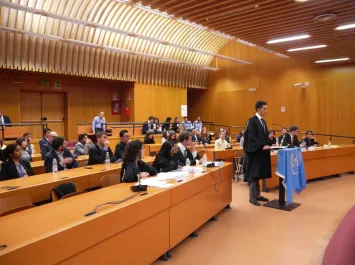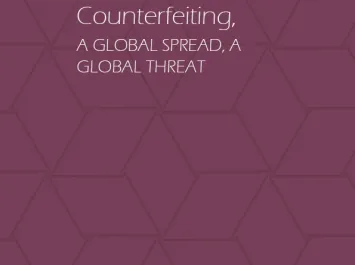During the COVID-19 pandemic, responding to the health crisis has been a priority concern worldwide. Its impact, however, has had a much wider range implications with unprecedented effects on the global economy and on a broad range of human, civil and labor rights, as well as rule of law and security-related issues, posing serious questions about what states need to prioritize next and how responses should be tailored to the current situation.
Undoubtedly, the pandemic is also hampering the achievement of the United Nations Sustainable Development Goals jeopardizing decades of progress and improvements in living standards and conditions. Despite the global impact of the crisis, which affects all segments of the population, all sectors of the economy, and all regions of the world, the pandemic is exacerbating pre-existing vulnerabilities of certain groups. Indeed, it is making inequalities in our societies even more evident, with severe disparities within and across countries, with respect to access to basic goods, health care, social protection, employment opportunities, education and justice.
In the context of this complex situation, vulnerable groups including minors, women, migrants, refugees, asylum seekers, elderly, people with disabilities, detainees in correction facilities, people with substance
use disorders or affected by mental illness, etc. are exposed to additional risks. Such risks are not only derived from the exposure to the virus itself, but also related to the different forms of discrimination, exploitation and violence, which can even be generated by the measures implemented by the states in an effort to contain the spread of the virus, as well as by the lack of necessary policy responses, due to the priority need of the governments to allocate and commit specific resources to manage the health crisis. In order to protect such groups, it is critical to identify these risks and properly address them.
Another key challenge Member States face relates to non-state actors (including violent extremist groups and criminals) that are taking advantage of the crisis to jeopardize the efficacy of governments' responses, as well as undermine the safety of citizens through a wide spectrum of malicious activities. The effects of this are likely not be limited to the present crisis but will continue in its aftermath.
Serious concern is also expressed regarding the COVID-19’s profound impact on the functioning of the criminal justice systems worldwide, which is posing enormous risks of human rights violations, including the right to access the justice in a timely and fair way.
Human rights, rule of law, justice and security-related concerns exacerbated by COVID-19, are undoubtedly even more acute in transitioning, conflict and post conflict areas.
In this context, it is becoming even more urgent for Governments to intensify the efforts to combat the pandemic, but at the same, to develop and put in place strategies and measures to mitigate the risks posed by the crisis, seeking the protection of the most vulnerable populations. In this regard, United Nations entities have collaborated and strengthened collective efforts to provide Member States with expertise, advice and resources to deal with the above-mentioned challenges, encouraging the use of creative and innovative solutions, especially needed in times of crisis.
In this context, thanks to the support of the Fondazione Compagnia di San Paolo, UNICRI will hold, a series of virtual meetings to discuss the implications of COVID-19 under a crime prevention, justice, human rights protection and development perspective, with a specific focus on vulnerable populations. In particular, the meetings aim to serve as a platform to:
1. Discuss emerging threats, trends and possible solutions to mitigate risks associated to the broad range of implications of the COVID-19 pandemic as they impact on vulnerable groups;
2. Identify priority areas of intervention to help ensure vulnerable communities are more protected in the post-COVID-19 world.
UNICRI’s priorities are particularly aligned with Sustainable Development Goal 16 on the promotion of peaceful and inclusive societies, access to justice and building effective and accountable institutions.
Permanent Missions of Member States to the United Nations, as well as Embassies are invited to attend the virtual meetings with the possibility to share a brief presentation or a statement regarding specific issues relevant to the addressed topics and contexts.
If you wish to register to one or more meetings, please click on the following link:
https://zoom.us/meeting/register/tJctceiorDsjHtTSSFlQuYoxuLNN_CY0Niy8
Once registered, your will receive a confirmation e-mail from UNICRI which will include the link to join the meeting/s.
If you wish to share a brief presentation (max. 5 minutes) or a statement during the meeting/s, please contact in advance Ms. Alice Rena (alice.rena@un.org) and Ms. Sonia Amelio (sonia.amelio@un.org ).



